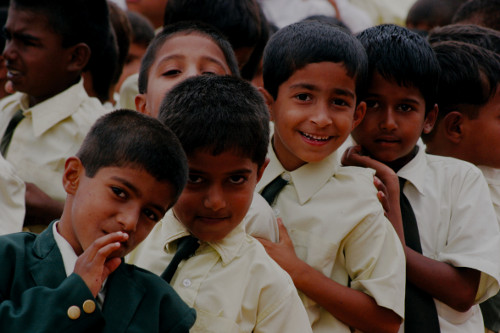August 1, 2020
In 1981, a young man noticed a small group of children playing near some construction rubble in Bengaluru. Ragged, and dirty, these children looked happy. Yet, the young man kept thinking, “They should be in school.” He started an informal set-up for them. Over the years, he launched several educational initiatives which branched out into premier educational institutes across the country. And 29 years later, he – Gurudev Sri Sri Ravi Shankar – welcomed the much-awaited National Education Policy (NEP) of India. “Education is a vehicle for transformation or metamorphosis of the self and an aid to the growth of the economy,” he often remarks. The NEP, certainly, seeks to bridge many differences between the potential and vision of education with the world’s future.
[bctt tweet=”“The purpose of education is to increase awareness. Only an education that can nourish inbuilt virtues can impart true intelligence.”” username=”SriSri”]
The NEP announcement in July brings many changes to the existing 34-year-old system. Several echoes of Gurudev’s implemented philosophy are found in the NEP. To name a few:
- the emphasis on human values as a critical foundation of education
- development of a scientific temper
- a shift from ‘what to learn’ to ‘how to learn’
- promoting emerging talents
- recognizing the uniqueness of each child and honing that talent
- culturing behavior, attitude, and perception
- respect for diversity, equity, and inclusion
- ensuring universal access to education
- focus on critical thinking
- emphasis on the physical & mental well-being of the child
“Basic human values need to be encouraged in the classroom. A child is born with these values and a teacher needs to uncover them. What are these human values? Compassion, co-operation, friendliness, smiles, laughter, lightness, wanting to help, a sense of belonging, and caring for each other.”
– Gurudev Sri Sri Ravi Shankar
Creating an equal field
- “At this young age, my daughter would have been working in the farms. We never dreamed she would get an education! I am so happy to see her going to school!”
– Mrs. Savitri, a parent whose child is a first-generation school-goer
There are thousands of such heartening stories across India. Yet there is an equal number of children who don’t have access or the support to study.
Gurudev often says: “Education is this civilization’s greatest leveler. It has the power to empower the weakest of the weak, bring peace to the world, and alleviate poverty. It is often seen as the only lit path in the pursuit of happiness.”
The NEP throws light on the socio-economically disadvantaged groups (SEDGs) with several initiatives, including:
- Bridging gender gap
- Emphasis on adult learning
- Continued learning
- Integrated vocational education
This will give impetus to existing programs like the Art of Living’s tribal school project which offers free holistic education at the grassroots.
While the success of any plan is dependent on its implementation, the right seeds are being planted. Perhaps the NEP will realize the dream of visionary educationalists.
The SSRVM is the education trust started by Gurudev Sri Sri Ravi Shankar. With a team of over 2,000 teachers, the trust hones the future of over 40,000 students across the country. With a premier university, colleges, and initiatives to drive free education, SSRVM offers a wide range of educational initiatives. Read more about the trust here.
The Art of Living provides free education to tribal and rural children across India. Get a glimpse of the heartening work here.

